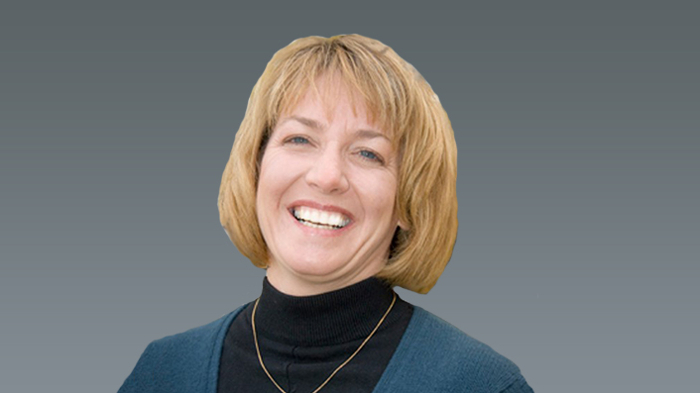Researcher aims to improve patient outcomes through new treatments and improved delivery
12 March 2024

Lauren Beaupre is a professor in the Faculty of Rehabilitation Medicine.
Lauren Beaupre is a physical therapist and epidemiologist. She’s also a professor, graduate supervisor and current Dr. David Magee Endowed Chair in Musculoskeletal Research in the Department of Physical Therapy, Faculty of Rehabilitation Medicine at the University of Alberta.
Former president of the international Fragility Fracture Network — the first Canadian and physical therapist to hold this role — Beaupre has worked closely with Alberta’s Bone and Joint Health Strategic Clinical Network to implement and evaluate provincial bone-health programs to improve secondary fracture prevention.
Beaupre currently leads the U of A’s Collaborative Orthopaedic Research (CORe), an interdisciplinary group from the faculties of rehabilitation medicine, medicine & dentistry and engineering dedicated to improving patient recovery from bone, joint and muscle conditions and injuries.
We contacted Beaupre to learn more about her and her research.
What is your area of research and why is it important to you?
My research focuses on people who sustain injuries or live with a chronic condition of the musculoskeletal (muscles, bones and joints) system. In particular, I work with patients who live with arthritis or who undergo total hip or knee replacements as well as older adults who sustain fragility fractures due to osteoporosis. These conditions are common and can create barriers to people living their best lives. As our population continues to age, the demand for more health-care services/support will grow as older adults aim to retain their independent lives in the community.
My research aims to improve patient outcomes by applying new treatments or streamlining how we deliver health-care services to use our limited health resources effectively and efficiently. Working with multidisciplinary teams facilitates the development of innovative solutions that can have a broader impact on both patients and health-care providers.
What is the most rewarding aspect of your work?
Developing and testing programs and interventions that improve patients’ lives and then helping to implement these new programs into usual clinical practice is really satisfying, particularly when these programs reach underserved patients such as those living in rural communities or who reside in residential care.
What do you find the most challenging?
Moving new programs and interventions into routine clinical practices requires substantial communication, teamwork and partnerships with patients, health-care providers and decision-makers to gather diverse perspectives and create innovative solutions. Creating these teams is essential to get buy-in from all stakeholders for new ways of delivering and receiving care and requires excellent communication, particularly good listening skills. It is often surprising to find simple barriers preventing adoption of new practices — barriers that can often be addressed with teamwork, support and communication.
Where do you hope your research will be in five to 10 years?
I hope that the new programs that have been developed and implemented are continuing as part of usual care, but are also being modified to address the changing needs of patients and the health-care system.
What might your students or colleagues be surprised to learn about you?
When I started training and then working as a physical therapist, the idea of performing clinical outcome research and having an academic career was not something that I had ever considered. I became interested in research and pursued further training to help address major evidence gaps in the field of rehabilitation research. It was a very different career path than I envisioned as a newly graduated clinical physical therapist, but has been very rewarding.
What’s the No. 1 piece of advice you give your graduate students?
Clinical researchers never work in isolation. Good clinical research takes a team that includes clinicians and patients as well as researchers. Having a well-rounded team ensures that you are solving problems that patients and providers also think are important. Good communication skills, particularly the ability to listen and consider the perspectives of other stakeholders, is one of the most important tools in a clinical researcher’s toolkit.